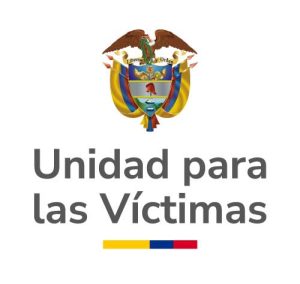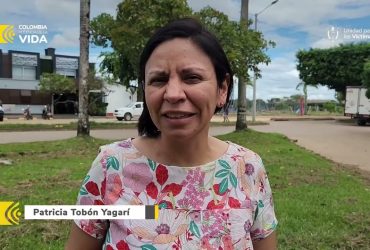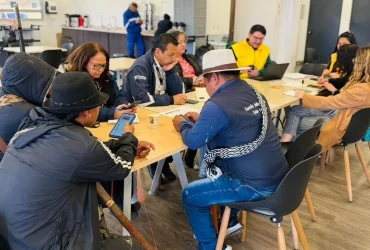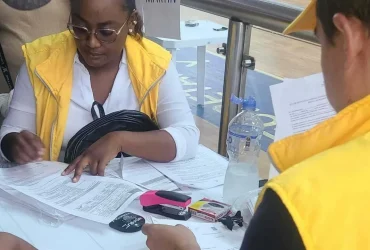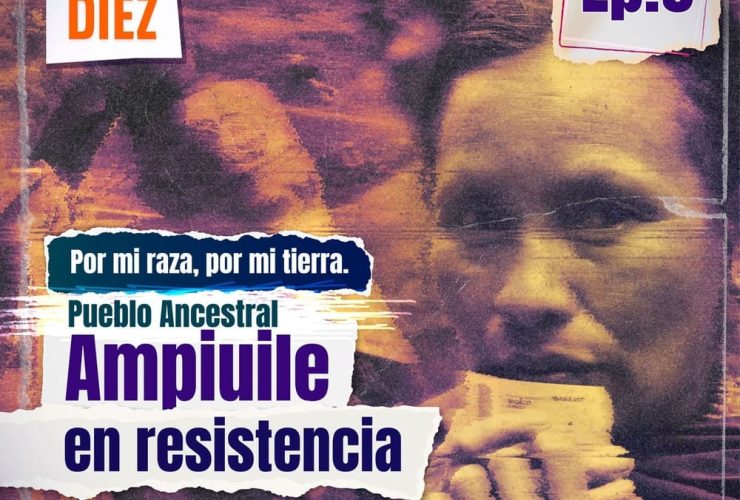The director of the Unit for Comprehensive Attention and Reparation for Victims, Ramón Alberto Rodríguez Andrade, took stock of the work carried out by the entity during 2020 and announced the most important achievements obtained in relation to the public policy of victims.
The director of the entity assured that, in relation to humanitarian emergencies during 2020, “all emergencies that arose were attended.” During this period, we coordinated the care of 67 events that affected 6,000 family nuclei made up of around 19,281 people. There, care was guaranteed in less than 48 hours by activating contingency plans, which allowed us to review the accommodation and food components”.
“We also carried out an exercise in the care of confinements, which occurred mainly in the department of Chocó. 20 confinement events that affected 7,371 families made up of 31,489 people,” added Rodríguez.
Regarding reparation, the official said that, “one of the achievements was to have guaranteed the statementes to the new subjects of collective reparation to carry out the assessment in terms of the registry.” “Today we can say that the Single Registry of Victims has no lags and has been strengthened with the crossings of information with the National Information Network. It has also been surpassed in relation to the novelties; before, more than a million new features were presented in the registry, today we can say that if there are 30,000 it is a lot ”.
“We can say that in the last 28 months of the current government we have closed 16 subjects of collective reparation, while in the previous eight years three subjects of reparation had been closed. And, despite this pandemic, we hope that, before the end of the current term, to be delivering 13 more Collective reparation subjects”, announced Ramón Rodríguez.
In Individual Reparation, the entity’s director said that “we had a goal of 127,000 indemnities and we are going to reach 120,200, with which we have exceeded more than 200,000 indemnities in the two years of the government of President Iván Duque.”
“The 2020 budget was the highest and allowed us to reach those compensations that had been projected, we lacked a little more resources, all the effort is being made there. One of the great difficulties was the delivery of the check letters during the pandemic, we overcame that by banking the victims in a job with our ally the Agrarian Bank, but we were also able to do it with the Banco Popular ”, explained the manager.
Rodríguez also took stock of the administration and monetization of the assets managed by the Victims Reparation Fund. “The balance of the Fund is the effective management of the assets, they are assets that are delivered at the time, what we want is to put them into operation, they have managed to monetize assets not in the proportions that we all want, but we can guarantee that these assets are being managed and guaranteeing their sustainability ”.
“In some cases, loans have been made with municipal administrations, while the entire process of assets forfeiture is being carried out and that is generating a cost, in this case we deliver it to an administration to handle it, so that it can be translated into victims benefited, “he noted.
Regarding Returns and Relocations, he assured: “We have updated the return and relocation plans as a closure of the victim care policy, but also reviewing special support schemes, without ignoring psychosocial care through individual and group strategies. Collective care for the victims and, with the articulation of that Inter-institutional Management Directorate, guaranteeing the new leaders the accompaniment so that the public policy of attention to those affected by the conflict is reflected in the development plans, and that the institutional offer reaches the victims ”.
According to the director of the Unit, as a result of the pandemic, requests for payment of humanitarian assistance increased. “We know of the capacity that victims have for resilience and entrepreneurship, but the pandemic affected them; They were in the process of overcoming the situation of vulnerability, but we know that they had to close their businesses, they lost their jobs. Faced with this, we attended more than 320,000 requests for Humanitarian Assistance, delivering more than 200,000 million pesos, guaranteeing the basic components such as food and accommodation, but the resources were insufficient for that number of requests, “he said.
Faced with the actions taken by the Unit during the health emergency, it revealed that “despite the closure of the Attention points and regional centers, through the different virtual channels the entity has the consultations and requests for more than five million victims ”.
“Today, complying with the biosafety protocols, we have more than 40 open service points and more than 10 regional centers operating in person,” he added.
Regarding the participation of Victims, Rodríguez stated that “the strategy of new leaders allowed us to consolidate in the municipal Development plans the incidence of victims in public policy reflected in the territorial action plans, but in addition to that, it allowed us to consolidate the supply issues, knowing what the territorial and national supply is, keeping control of that supply that allows us to allow victims to present themselves to many calls that were allowed to pass ”.
For the director, “in the context of the pandemic, spaces for participation were lost to the victims and therefore a call had to be made to the control entities so that the mayors and governorships provide the necessary tools to guarantee effective participation mechanisms of victims in all settings”.
“We also performed an exercise to train the victims’ tables in the new platforms used during the pandemic, because for everyone the issue of virtuality was new, there, we guaranteed connectivity, the management of the platforms in the basics and with it, to be able to guarantee that effective participation ”, concluded the director.
In Rodríguez’s opinion, 2020 was a year of good results in which the goals set were achieved despite the pandemic. He said that in 2021 work will continue to strengthen assistance, care and reparation, “since peace is built together with the victims.”
Challenges 2021
In Collective Reparation: “There are very big tasks left, we hope to close 50 subjects of Collective Reparation and we want to reach those subjects of collective reparation that have been so difficult in terms of access, the construction of plans, including ethnic ones, with them we want to closures in 2021, not only within the framework of Law 1448, but also under the decree laws ”, explained the manager.
Another challenge for the next term has to do with obtaining additional resources. “We have victims who already meet all the requirements for the payment of compensation and also to advance in the issues of collective reparation, resources are needed, this has to be accompanied by the monetization of the assets that were received from the postulates of the Law. of Justice and Peace, those 1,600 that are in the Fund, these resources will be used to first pay compensation through the courts”.
Regarding the payment of Humanitarian Attention, the director of the Unit for Victims said that another great challenge ” is to overcome the lag that remains of 2020 in terms of applications.” “We hope that by 2021 and 2022 we will be able to level this whole process again, we know that within the framework of COVID-19 the country may take between 7 or 10 years to recover all economic dynamics, but the goal we have is that in For 2 or 3 years we will once again be able to have the victims without delay in this matter and continue to make progress towards overcoming the situation of vulnerability, he added ”.
Finally, other challenges according to Rodríguez “is to continue to advance in the consolidation of the articulation with the Comprehensive System of Truth, Justice, Reparation and Non-Repetition, also to guarantee the Return and Relocation plans in the territory and the articulation of the National System of Attention and Comprehensive Reparation to Victims (SNARIV) to deliver the institutional offer to the victims ”. “All this will allow us to consolidate processes that lead us to the construction of peace scenarios in the territory, mainly in the areas where we have articulation with PDET municipalities,” he concluded.
(Fin/DFM/LMY/AEB)

